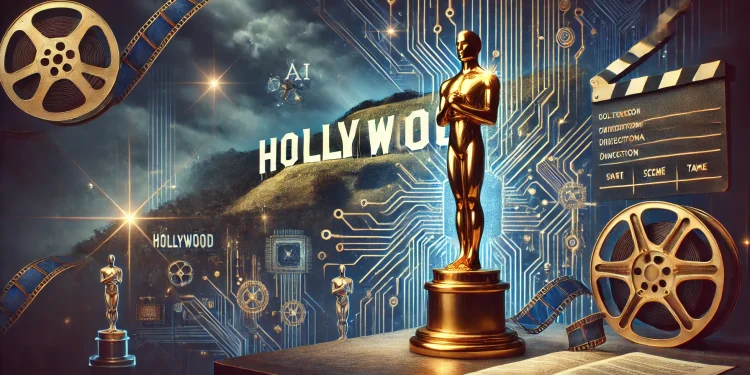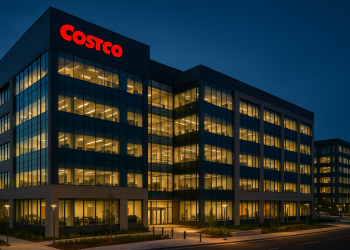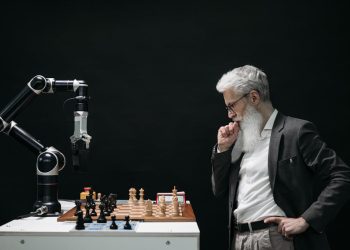No products in the cart.
Hollywood’s AI Dilemma: The Oscars, Transparency, and the Future of Filmmaking
As AI becomes a bigger part of Hollywood, the Oscars are stepping in to enforce transparency. With films like The Brutalist and Emilia Perez sparking debate, the Academy’s AI disclosure rule could redefine the future of cinema.
The Academy Awards have always been a mirror to Hollywood’s evolution, capturing shifts in storytelling, technology, and cultural values. Now, the Oscars are facing a new challenge—artificial intelligence. following controversies surrounding AI use in films like The Brutalist and Emilia Perez, the Academy of Motion Picture Arts and Sciences is set to mandate AI disclosure for future Oscar submissions.
This isn’t just an industry regulation; it’s a defining moment for the future of cinema.
The Growing Role of AI in Film
AI has quietly become a key player in Hollywood. It’s already used for de-aging actors, enhancing performances, generating visual effects, and even writing scripts. Films like The Brutalist and Emilia Perez made headlines for using AI in post-production—raising concerns about authenticity, consent, and creative integrity.
In The Brutalist, AI was reportedly used to tweak actors’ accents in post-production, prompting backlash from critics who questioned whether it altered the performances. Director Brady Corbet later clarified that AI played a minimal role, but the controversy highlighted an important issue: How much digital interference is too much? Similarly, Emilia Perez used AI voice cloning, igniting debates over whether actors’ performances should remain untouched.
Beyond these specific cases, AI’s presence in cinema is growing. Martin Scorsese’s The Irishman used digital de-aging technology, and the upcoming Dune: Part Two reportedly leveraged AI for visual effects. The film Here will use generative AI to de-age Tom Hanks and Robin Wright in a way that surpasses traditional CGI.
 AI
AIAI’s Role in the Future of Libraries: Replacement or Enhancement?
As AI technology evolves, the role of librarians is shifting. This article explores how AI enhances rather than replaces human…
Read More →Similarly, Emilia Perez used AI voice cloning, igniting debates over whether actors’ performances should remain untouched.
The technology is here. The question is: How will Hollywood regulate it?
Why the Oscars Are Stepping In
The Academy’s decision to introduce mandatory AI disclosure by 2026 is a response to growing concerns over transparency. Currently, filmmakers can voluntarily disclose their AI usage, but the new rule will require a formal statement detailing how AI was employed in a film’s production.
This move follows a broader industry reckoning with AI. Last year’s Writers Guild of America (WGA) strike included demands for AI regulations, ensuring that AI-written scripts cannot replace human screenwriters. The Screen Actors Guild (SAG-AFTRA) also pushed back against AI-generated likenesses, fearing that studios could use digital replicas instead of hiring actors.
By enforcing AI disclosure, the Oscars aim to keep audiences informed and uphold artistic integrity. But will it be enough?
The Ethical Debate: Creativity vs. Convenience
AI is a tool, but its application in cinema raises complex ethical questions. Should AI be used to resurrect deceased actors? Should performances be digitally altered to “improve” an actor’s work? What happens when AI-generated scripts become indistinguishable from human-written ones?
 Career Development
Career DevelopmentCareer Growth Insights from Ghana’s Job Market
Ghana's job market is evolving rapidly, presenting new opportunities and challenges for young professionals. Discover key strategies for success.
Read More →Should performances be digitally altered to “improve” an actor’s work?
Filmmakers argue that AI can enhance creativity rather than replace it. AI-generated backgrounds, for example, reduce costs for independent filmmakers. AI-assisted editing speeds up post-production. Even scriptwriting tools powered by AI are being explored, though they remain far from replacing human storytelling.
Yet, the risks are clear. AI could lead to a decline in jobs for actors, editors, and writers. It could blur the line between authentic performance and digital fabrication. If an AI-altered film wins an Oscar, does the credit belong to the filmmaker, the actors, or the algorithm?
The Road Ahead
Hollywood has always adapted to new technologies. Sound, color, CGI—all faced resistance before becoming industry standards. AI is the next frontier, but unlike past innovations, it raises existential questions about artistry and ethics.
The Academy’s AI disclosure rule is a step toward accountability, but it won’t stop AI’s advance. Instead, it will force filmmakers to be more transparent, allowing audiences to decide what level of AI intervention they’re comfortable with.
The Oscars’ new rule isn’t just about disclosure—it’s about defining the future of storytelling.
As AI continues to shape filmmaking, the real challenge will be striking a balance: using technology to enhance creativity without erasing the human touch. The Oscars’ new rule isn’t just about disclosure—it’s about defining the future of storytelling.
 Business
BusinessCEOs Speak Out: The Tariff Dilemma and U.S. Investment
A majority of CEOs reveal that tariffs are hindering their willingness to invest in the U.S., raising concerns about future…
Read More →What do you think? Should AI be embraced in cinema, or does it threaten the authenticity of filmmaking?











